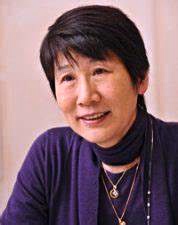“Every [Sunday], the morning of my one day off plays out the same way. ‘There’s milk, sliced bread, whatever you want, just help yourself,’ I tell her, not opening my eyes. The lull that follows allows me to drop trustingly off again until my daughter breaks into more tears. I spilled the milk. I wet my pants. The glass broke…Reluctantly I sit up. [It is almost noon.]…There is a pool of milk, glints of broken glass, a scattering of toys on the floor. Her finger is bleeding….”
 In her first novel to be translated into English, Yuko Tsushima (1947 – 2016), an author who has won every prize imaginable in her native Japan, shows the spirit which has made her work so honored in her own country. A divorced, single mother whose own father, a writer, died when she was a year old, author Tsushima grew up with her mother, was educated, married, had a child, divorced, and then learned, first-hand, what it was like to be the sole bread-winner in a society which rewarded men far more often than women. Independent and determined, Tsushima challenged the social norms and achieved great renown for her writing, often using her own experiences as starting points for her stories and novels. This novel, published originally in 1978 – 1979, focuses on a married mother seeking a divorce. The unnamed main character and her daughter, only two years old as the novel opens, face very real problems with day-to-day life, in addition to agonizing emotional problems which the woman ignorantly creates for herself and her child. Focused on her own emotional needs, she has shared so little one-on-one time with her child that she does not recognize that the child, who, at age two, is not much older than a baby, has very real and important needs, too. Seeming to believe that if she herself gets what she wants and finds some happiness that her attitude will also spill over and make her two-year-old happy, she is, throughout the novel, closed off from her child, whose whole life is spent with her grandmother (the speaker’s mother), in daycare, or with her own mother on Sundays, her mother’s one day of “time off” from her full-time job.
In her first novel to be translated into English, Yuko Tsushima (1947 – 2016), an author who has won every prize imaginable in her native Japan, shows the spirit which has made her work so honored in her own country. A divorced, single mother whose own father, a writer, died when she was a year old, author Tsushima grew up with her mother, was educated, married, had a child, divorced, and then learned, first-hand, what it was like to be the sole bread-winner in a society which rewarded men far more often than women. Independent and determined, Tsushima challenged the social norms and achieved great renown for her writing, often using her own experiences as starting points for her stories and novels. This novel, published originally in 1978 – 1979, focuses on a married mother seeking a divorce. The unnamed main character and her daughter, only two years old as the novel opens, face very real problems with day-to-day life, in addition to agonizing emotional problems which the woman ignorantly creates for herself and her child. Focused on her own emotional needs, she has shared so little one-on-one time with her child that she does not recognize that the child, who, at age two, is not much older than a baby, has very real and important needs, too. Seeming to believe that if she herself gets what she wants and finds some happiness that her attitude will also spill over and make her two-year-old happy, she is, throughout the novel, closed off from her child, whose whole life is spent with her grandmother (the speaker’s mother), in daycare, or with her own mother on Sundays, her mother’s one day of “time off” from her full-time job.
The novel begins when the mother and child have found an “ideal” place to live, the fourth floor of a commercial building with shops and offices on the first two floors, an empty third floor, and their apartment on the top floor, which also has access to the roof. Big windows supply the place with plenty of light, a feature which the mother sees as symbolic of her new life, and which explains the novel’s title. Living close to the edge financially and personally, the mother simply closes herself off when anything unpleasant threatens to interfere with her life, and when a tenant from a downstairs office complains about the sound of running water which may be leaking from her apartment, she makes a cursory check, sees no water in her own place, and ignores it – until the next day when her floor is wet, the roof has a huge puddle, and the tenant below has a disaster. Her daughter, however, loves their new “rooftop sea,” and her mother soon joins her there in one of the few experiences which they share with each other – for fun.
Shortly afterwards, on a Sunday, she and her daughter go to a local park, and the mother becomes totally obsessed by the zelkova trees, while her child, who has been virtually alone and untended all morning, is impatient for a new activity and anxious to explore. Insensitive, the mother cannot pull herself away from the trees, and the daughter finally gets beyond frustrated. A tantrum ensues, and the mother, frustrated that her daughter seems to think everything is all her mother’s fault, resorts to violence, inspiring the child to take off on her own, and leaving the mother to wonder, “Why were children the only ones who ever got to melt down?” She dillydallies before seriously looking for her child, wondering, instead, about why she cannot make herself get up before noon on Sundays, about a woman at the park whose son attends the same nursery school and is having problems, all while she could be looking for her child. When she finally finds the child, some time later, they return home, the mother seeming to take the experience of her lost child as just another day.
A series of dreams adds additional insights into the mother’s psyche and high drama to the action. The mother has no problem leaving her sleeping child alone at home at night while she goes out, not an unusual event. She gets drunk and becomes the victim of physical abuse, all while her young daughter is asleep at home. Soon she begins to notice that her daughter, who has just turned three, is throwing toys and possessions out the window of their apartment, colorfully decorating the roof below and creating both a personal and, eventually, a neighborhood crisis. Other disasters also occur. The mother has frightening dreams about her child, her husband unexpectedly takes the child from daycare one afternoon, and one of the children at daycare dies at home. Two people die in a fire, and her three-year-old reportedly threatens an infant at daycare with scissors. The action is non-stop domestic activity, including potential disasters complicating the life of the little girl, now three years old. The mother sees changes in the child but believes that it is because the child has finally become “keenly alive.”

The mother and child enjoy the idesia tree, with its red berries and its leaves, not long after a suicide takes place on the train route.
The novel consists of twelve chapters, published in Japan in monthly installments between April, 1978, and March, 1979, and the reader is able to see changes in both the mother and child over the course of the year. One issue which a contemporary female reader may have with this book, despite its sensitive writing and thoughtful psychological study of a mother who is not part of the Japanese mainstream, is the question of the mother’s treatment of the young three-year-old and the stated behavior of this child, which often feels more characteristic of a child closer to seven or eight years old than two or three years old. In addition, a reader cannot help but wonder how much of the behavior of this mother and child is characteristic of Japanese society in general in the late 1970s and how much is aberrant. The life of the mother as a child herself is a mystery here, so her lack of identification with her child is never really explained, leaving the reasons for her emotional coldness a mystery. Beautifully translated by Geraldine Harcourt, with some stunning passages related to nature – the one subject about which the mother seems to feel strongly – the novel is filled with thoughtful symbolism which does not intrude, and intense, emotional scenes which will wring the hearts of the many mothers and fathers who read it.
Photos. The author’s photo appears on http://www.desfemmes.fr/
The Japanese zelkova tree, a variety of elm, completely obsesses the mother when she first arrives at the park she will share with her daughter. https://www.alamy.com
Nyasa lovebirds appear in a dream to the young mother, who is being harrassed by her husband. https://www.hbw.com/
The mother and child enjoy the idesia tree, with its red berries and its leaves, not long after a train hits a suicide. http://auckland-west.co.nz



